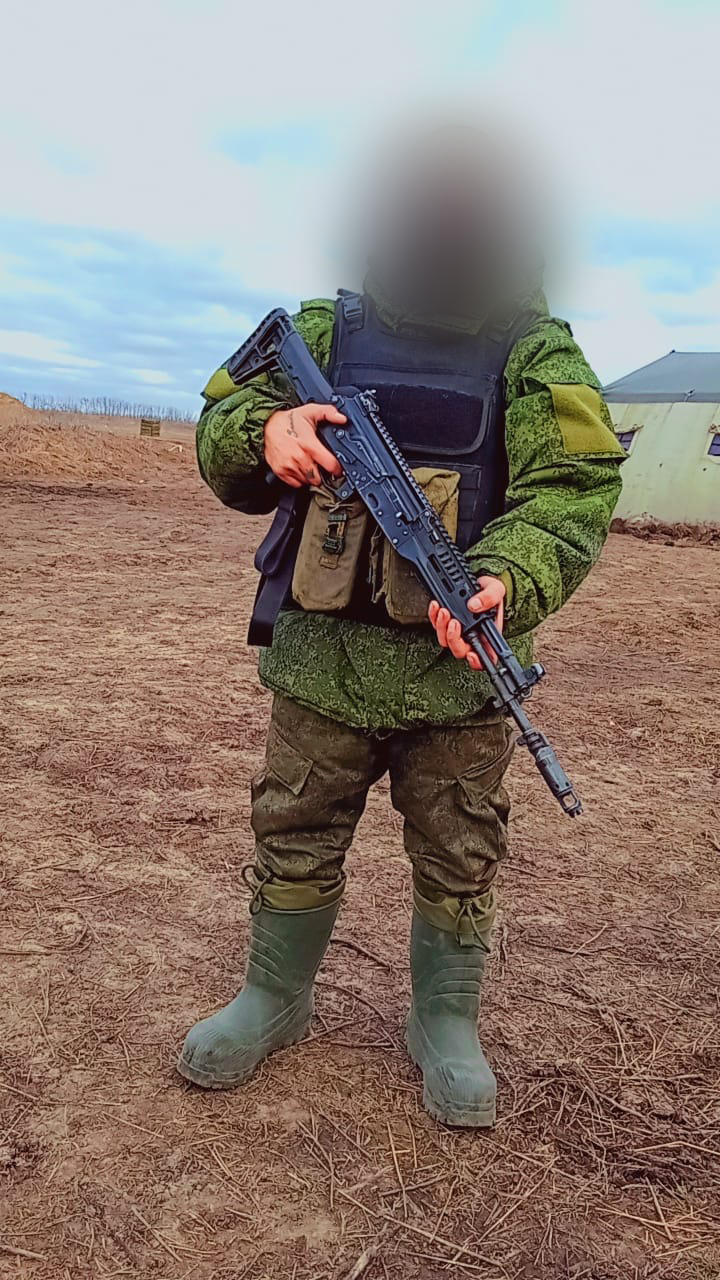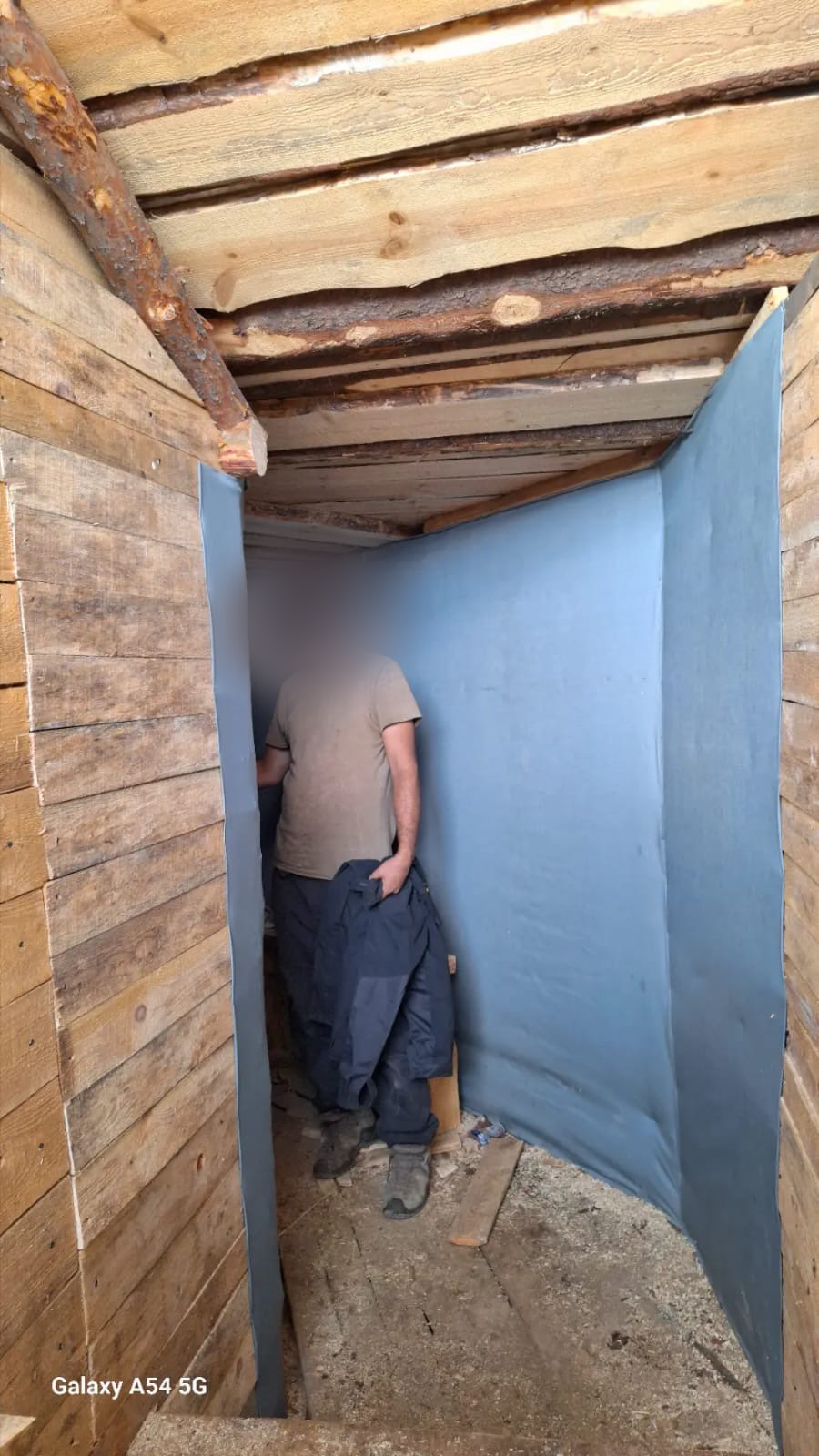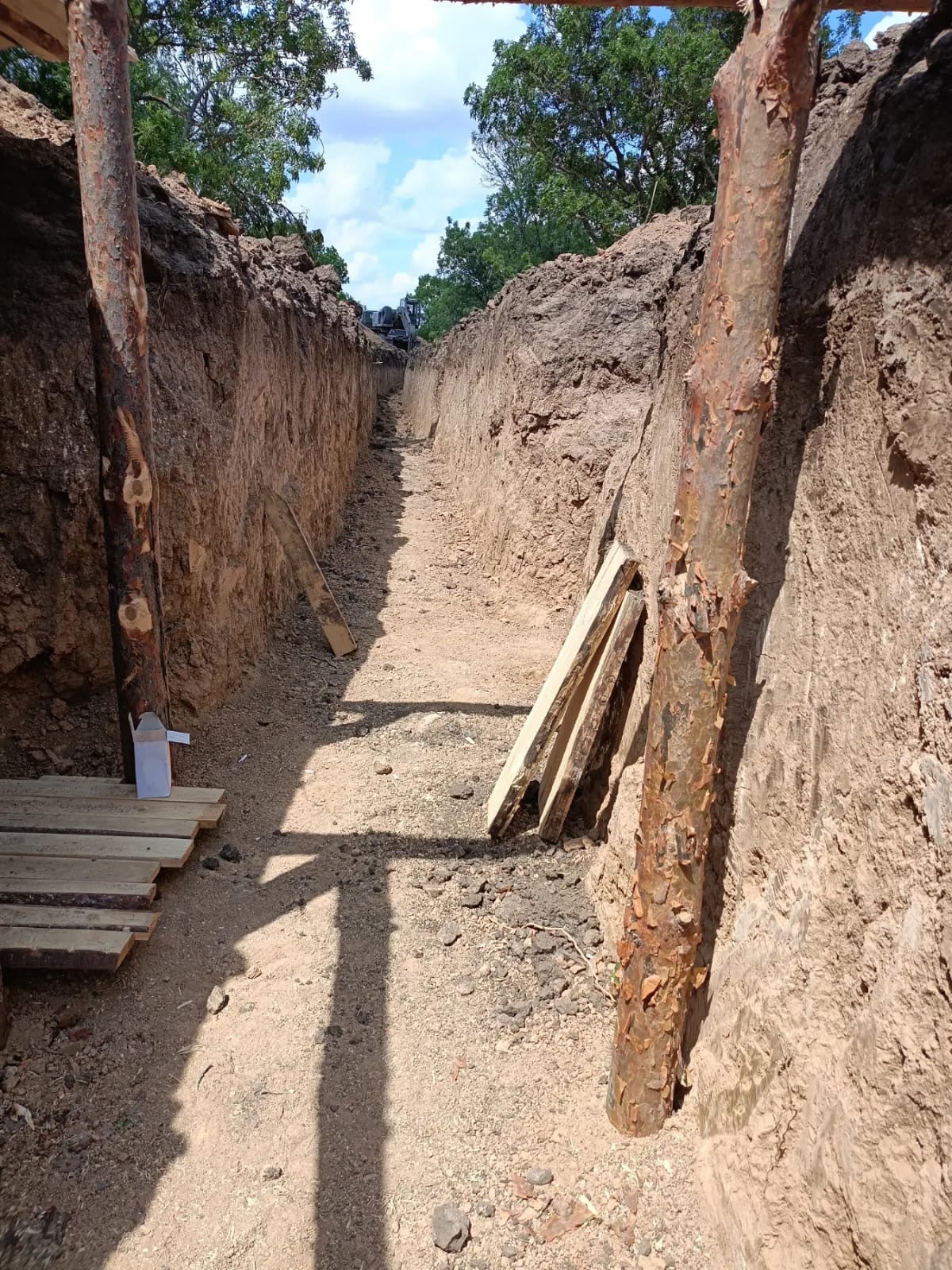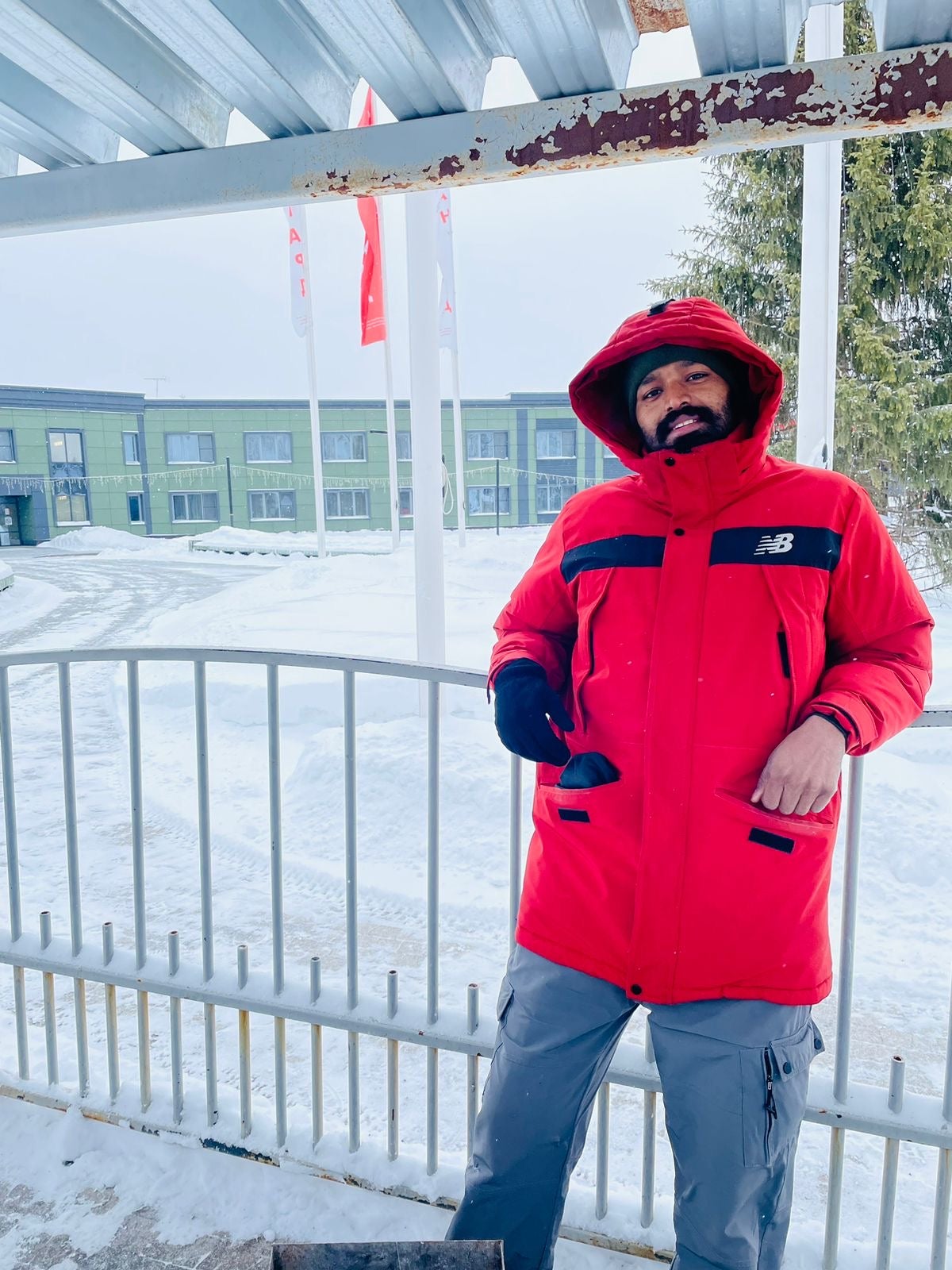‘I could die any moment’: Indians forced to fight for Russia in Ukraine say they feel abandoned by Delhi
Indian recruits in the Russian army speak to Shweta Sharma from the frontline in Ukraine, where their hopes of a discharge – seemingly secured by Narendra Modi’s talks with Vladimir Putin in Moscow – have vanished


I want to see the clear blue sky that is not raining drones and missiles if I make it out of Russia alive,” says Hardeep Gill*, a 24-year-old Indian man caught in the middle of the first major European conflict since the Second World War, fighting for a country that isn’t his own.
Gill, from a city in Punjab, is one of nearly 100 Indian nationals who have found themselves fighting alongside the Russian army in Ukraine, many of them ensnared by human traffickers tasked with recruiting foreign fighters to bolster the ranks of Vladimir Putin’s army.
Gill speaks to The Independent from a frontline location in southern Ukraine, talking in Hindi via WhatsApp voice notes for fear of being caught by his Russian superiors.
“I could die any moment. I am in a dangerous place where we are being attacked by drones constantly,” Gill says.
Like many in India’s Punjab state, Gill grew up with dreams of settling abroad and wanted to pursue further studies in the UK. After he was denied a visa, he claims he left for Russia in mid-December on a tourist visa for the sake of getting a foreign stamp in his passport, hoping that travel experience would bolster his chances of securing a trip to the UK in the future.
His plans unravelled, he says, when a taxi driver in Russia overcharged him, robbed him of his money and belongings, and left him stranded. With no support system and no knowledge of the language, he wandered the streets, before finding his way into the hands of recruiters who inducted him into the Russian army.
Now Gill has been deployed to the front line, digging trenches and assisting soldiers in a war that is not his own.

“I am unable to recall and think clearly about what happened before I came here, how my life was and what I was doing. My mind is clouded due to the sound of constant blasts,” he says.
“All I want right now is to return home and meet my parents, my family. But that’s a distant dream now as my seniors here tell me they have received no orders to release me from duty.”
Gill’s situation is dire, and he is not the only Indian feeling abandoned on the front lines in Ukraine. India’s foreign ministry has identified 91 citizens recruited by the Russian army, eight of whom have been killed.
There was widespread positive media coverage in India of a July visit by prime minister Narendra Modi to Moscow, suggesting he had secured a pledge from Putin to discharge all Indians fighting in Ukraine.
Kirti Vardhan Singh, minister of state for external affairs, later told parliament that 12 Indians have already left the Russian armed forces while 63 are seeking an early discharge.
Yet the ministry has not disclosed the names of any of those who have supposedly returned alive, and Gill claims not a single Indian recruit has actually been discharged by Russia. “No one has returned from Russia yet, not alive. These are rumours and false news. I take updates from my commanders almost every day about the orders from higher up for my release, but all they tell me is they cannot release me until they receive the orders,” he says.
The Independent has approached the Indian foreign ministry for comment.

The reality of Gill’s day-to-day life is bleak. He is at the front line for 14 to 15 days at a time, digging trenches and providing support for soldiers.
He returns to the base for just two days of rest before being deployed again.
“I will be deployed again tonight and I don’t know if I will return. I might be talking to you for the last time,” he says.
Food is scarce and Gill has not had a proper meal in days, surviving on little more than bread. Sustained attacks from the Ukrainians make every moment a fight for survival.
“The Ukrainian side is attacking constantly. It is a dangerous situation. I can’t tell you what all I have seen during my days here. It is horrific. People are dying and the fear of death is everywhere,” he says.

India enjoys close diplomatic and economic ties with Russia, a relationship that has spanned decades and remained resilient despite global geopolitical shifts. Modi’s visit to Russia was supposed to emphasise this camaraderie, with the prime minister giving Putin his trademark bear-hug greeting despite objections from Ukraine’s Volodymyr Zelensky.
Yet neither Modi’s visit nor New Delhi’s strong relationship with Moscow have yet proved any help to Gill.
Another Indian recruit is Umair Mir*, 32, from Kashmir. The commerce undergraduate became a father shortly after he was recruited into the Russian army but is yet to meet his son, who is already six months old, his brother Afnaan Mir* tells The Independent.
“We have shared pictures and videos of his son but as a new father he aches to hold his newborn in his arms and his wife is miserable here,” Afnaan says.
Mir, who previously worked drilling borehole wells in India, says he was “duped” by a YouTuber who promised him a job in Dubai but arranged for him to be sent to Russia instead on 14 December. Others who ended up fighting in Ukraine have also said they were tricked by the same YouTuber – who has posted videos saying Russia’s army needs “helpers” but has denied any knowledge or involvement in anyone being posted to the front line.
“He has been on the front line for the last two months and I have been running from pillar to post here for eight months but nothing is happening. We have been abandoned by the Indian government and we are receiving no help,” Mir’s brother says.
“We have now left it to God. We have no hopes from the government. He will survive if God wills.”
Mir and some of the other Indian men with him are now waiting for their contract with the Russian military to end in December.
In a message to The Independent from the war zone, Mir says: “This is a dangerous place. They have told us to make a bunker here. The war is raging.”
“I cannot call you as they will get to know and confiscate my phone or even beat me up,” he says, referring to the Russians.

As Mir and Gill cling on to hope, a family in Punjab is waiting in agony for the body of their loved one to arrive from Russia.
Tejpal Singh, 29, from Amritsar died on 12 March but his family only came to know about his death on 9 June, three months after he was killed by a missile strike.
His widow Parminder tells The Independent that he was killed during his deployment in the Zaporizhzhia region, two-thirds of which was captured by the Russian army in the first weeks of the war.

His children, a six-year-old boy and a three-year-girl, do not know their father has died in a foreign country and will never return.
Parminder claims her husband travelled to Russia on a tourist visa after a friend in the Russian military asked him to come and join as a “helper”.
“He went there on 12 January and sent us a picture of himself in Russian military uniform after four days. He told me, ‘I am finally in uniform,’” she says, recalling their conversation and his lifelong dream of serving in the army.
They last spoke on 3 March after he was taken to Tokmak city in Zaporizhzhia.
“Everything went silent for a month and we became worried,” she recalls. “He had asked us to wait if he doesn’t call and we waited for a month. I then contacted some people there and got another contact who told us he has died. We got to know on 9 June,” she says.
Parminder is now in the process of arranging for a DNA report that will be sent to Russia to confirm the identify of her husband’s body. “The only hope we have is of getting his body, so that we can give him the farewell he deserves,” his widow says.
* Names changed to protect identities






Join our commenting forum
Join thought-provoking conversations, follow other Independent readers and see their replies
Comments